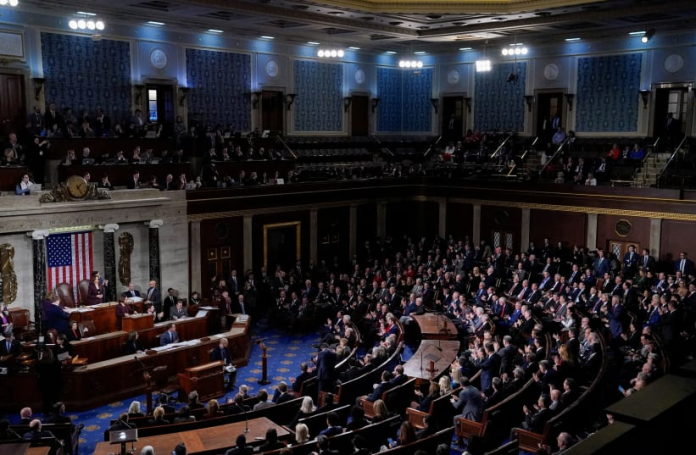The US House of Representatives voted in favour of sanctions against the International Criminal Court (ICC) in protest over arrest warrants against Israeli Prime Minister Benjamin Netanyahu and his former defence minister Yoav Gallant.
243 votes were in favour of the “Illegitimate Court Counteraction Act,” whereas 140 voted against it. The act provides for sanctions against any foreigner who investigates, arrests, detains or prosecutes US citizens or citizens of an allied country, including Israel, who are not members of the court.
Representative Brian Mast, Republican chairman of the House Foreign Affairs Committee, said on Thursday:
America is passing this law because a kangaroo court is seeking to arrest the prime minister of our great ally, Israel.
The vote underlined the strong support for Israel’s government from Republicans, supporters of US President-elect Donald Trump. Today, Republicans control both houses of Congress.
In December, President Judge Tomoko Akane said that the measures “would rapidly undermine the Court’s operations in all situations and cases and jeopardise its very existence.”
The first Trump administration imposed sanctions on the ICC in 2020 in response to investigations into war crimes in Afghanistan, including allegations of torture by US citizens. The sanctions were lifted by President Joe Biden’s administration, although Secretary of State Antony Blinken said last May that he was willing to work with Congress on possible new penalties against the ICC.
Five years ago, then ICC prosecutor Fatou Bensouda and other staff had their credit cards and bank accounts frozen, with travel to the US hampered. New sanctions passed by the US House of Representatives also allowed the prosecution of people who aided the court’s work.
The ICC said its decision to issue arrest warrants for Israeli officials was consistent with its approach in all cases, based on the prosecutor’s assessment that there was sufficient evidence.
